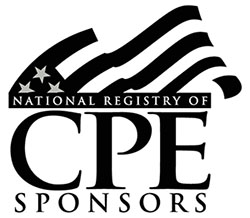
A Two-Day Classroom Seminar (CPE Approved)
Register Soon to get Early Bird Pricing.
This practical course will enhance skills in understanding, developing and negotiating key contract terms, for domestic U.S. as well as international energy and electrical industry contracts. The concepts and techniques apply whether one is selling gas in Columbia, South Carolina, or exporting oil to Colombia.
The course builds upon two predicates: the business context and the legal framework. These will both be explored using realistic scenarios and examples. The business context includes "who, what, when, where and why:" the parties, business deal, timing, location and objectives. The legal framework starts with UCC Article 2 - Sales of Goods. This law applies to commercial contracts (except in Louisiana), whether one is selling a turbine, gas or electricity. The course will contrast the UCC with its international counterpart: the UN Convention on Contracts for the International Sale of Goods (CISG). Some key differences between U.S. and international practices will be reviewed.
Once one understands the business deal and the legal framework, appropriate contract language can be developed. Relevant energy industry forms or precedents provide a useful starting point, but each term or clause serves a purpose. Translating the business deal into clear contract language represent the first priority. One should follow the money through pricing and payment terms. Risks must be allocated. Unexpected events and the endgame should be anticipated. Last but not least, actual implementation requires forethought. All of this becomes more complex with global commerce, electronic transactions and regulatory compliance issues. Using samples and hands-on exercises, attendees will share good drafting practices and improve upon their techniques. By the end, every attendee should feel more comfortable with handling transactions virtually anywhere in the world.
- The most relevant parts of the Uniform Commercial Code for energy contracts
- How international commercial laws and practices differ from the UCC
- The importance of understanding and tailoring the business deal for energy, oil and gas or electricity transactions
- Finding the right model or template for developing a workable contract
- Structuring a contract to fit the energy industry and the deal
- The meaning and possible variations of contract terms
- How to (and how not to) negotiate key provisions
- Ideas for mitigating contract risks by implementation
CONTRACTS LAW
- Salient provisions of the Uniform Commercial Code for U.S. sales of goods
- Comparing the UN Convention on Contracts for the International Sale of Goods
- Unique International Sales Issues (e.g., Taxes, Currency Exchange, FCPA)
- Other applicable laws affecting the contract
- Addressing Legal Requirements via Contract Terms
TRANSLATING BUSINESS DEAL TO CONTRACT
- Decide Who's Doing the Drafting
- The Right Form or Precedent for the Contract - Some Model Forms
- Determining the Parties' Intentions and Objectives
- Prioritizing Deal Points
- Identifying Risks and Gray Areas
FOLLOW THE MONEY
- Price and Payment Terms
- Financial and Performance Security
- Interrelationship with Other Contract Provisions
FROM START TO FINISH
- Effective Date(s)
- Conditions such as Government Approvals, Permits and Licenses
- Schedule for Performance and Completion
- Delay Liquidated Damages and Other Remedies
- Early Termination
QUALITY ASSURANCE
- Standards and Metrics, Product Warranties and Performance Guarantees
- HSSE Compliance
- Remedies for Breach
- Liability Limitations
ANTICIPATING THE UNEXPECTED
- Deep Dive into Force Majeure, Uncontrollable Circumstances and Changes in Law
- Changes in Company Ownership or Control
- Bankruptcy and Insolvency
DEVILS IN DETAILS
- Legal Compliance Risks
- Indemnities and Knock for Knock Provisions
- Protecting Intellectual Property and Confidential Information
- Third Party Roles (e.g., Subcontractors and Consultants)
- Assignment of Rights and Delegation of Duties
- Spending Time with "Miscellaneous" Provisions
NEGOTIATING FROM STRENGTH OR WEAKNESS
- Developing Win/Win Solutions and Fallback Positions
- Addressing Problem Areas through Implementation
PROJECTS GONE SOUTH
- Understanding Contract Terms and Options
- Recognizing Ambiguities and Uncertainties
- Dispute Resolution: Negotiation, Mediation, Arbitration and Litigation
PRACTICE MAKES ALMOST PERFECT: Workshop on Drafting, Critiquing and Revising Contract Language
- Additional attendees and government employees receive a 10% discount.
-
Register 4 or more attendees and receive 20% Off.
Special pricing is available for groups of 5 or more.
If you want attendees to pay with separate credit cards or have other questions, please call (440) 853-1038 for assistance.
This live group seminar is eligible for 13.0 CPE credits. Be aware that state boards of accountancy have final authority on the acceptance of individual courses for CPE credit. As of January 1, 2002, sponsored learning activities are measured by program length, with one 50-minute period equal to one CPE credit. One-half CPE credit increments (equal to 25 minutes) are permitted after the first credit has been earned in a given learning activity. You may want to verify that the state board from which your participants will be receiving credit accept one-half credits.


The Global Association of Risk Professionals (GARP) is a not-for-profit membership association dedicated to preparing professionals and organizations for making better-informed risk decisions. GARP's membership represents more than 150,000 risk management practitioners and researchers at academic institutions, banks, corporations, government agencies, and investment management firms in 195 countries and territories. GARP administers the Financial Risk Manager (FRM) and Energy Risk Professional (ERP) Exams – certifications recognized by risk professionals worldwide. Visit www.garp.org/cpd.
This seminar will benefit almost anyone who is involved in the natural gas, petroleum, electric power or natural gas liquids processing industries. Inexperienced and seasoned professionals in sales and marketing, energy procurement, energy trading, trading support, risk management, contract administration, project management, finance, accounting, attorneys and paralegals will receive important insights from this seminar which might save your company from losing millions of dollars on one poorly written transaction. Energy and electric power executives, auditors, plant operators, government regulators, engineers and corporate planners will also benefit from this seminar.
Types of companies that typically attend this program include energy producers, refiners, and marketers; utilities; banks, private equity and hedge fund asset developers ; industrial companies; accounting, consulting & law firms; municipal utilities; government regulators and electric generators.
This fundamental level group live seminar has no prerequisites. No advance preparation is required before the seminar.
PGS seminars are known for their clear explanations and in-depth content. Register for a PGS class today, and join the over 10,000 energy professionals who have already attended one of PGS's proven programs.
